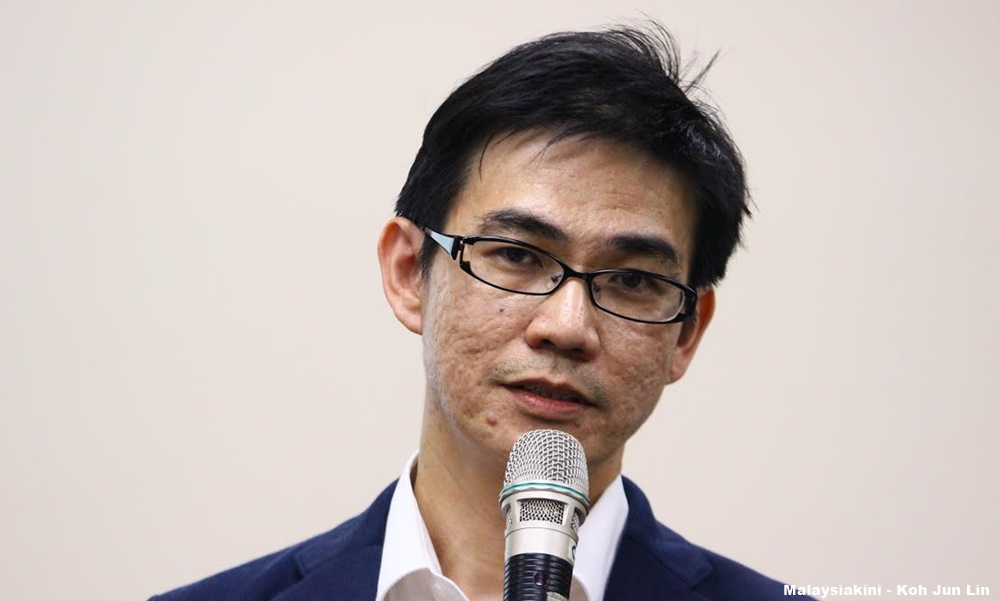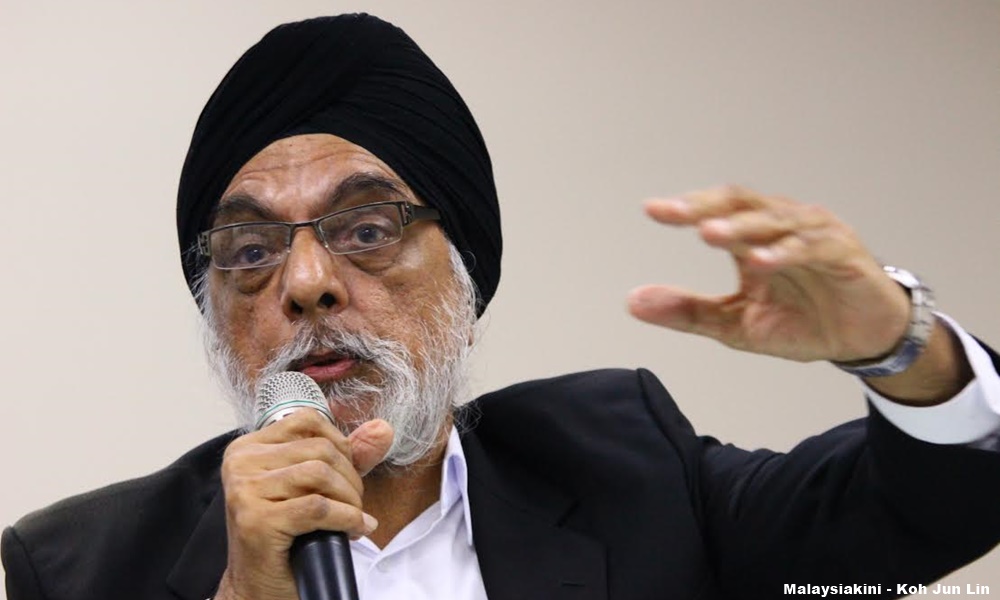Several panellists at a MCA-organised forum on the Syariah Courts (Criminal Jurisdiction) Act 1965 (Act 355) amendments claimed that the legislation is a stepping stone towards introducing hudud law.
This is despite that the amendments proposed by PAS president Abdul Hadi Awang had been repeatedly watered down since it was first introduced, and that proponents claimed that its purpose is to strengthen the syariah courts rather than having anything to do with hudud.
 One of the panellists, Putrajaya MCA Youth chief Kevin Koo, described the current version of the amendment as a compromise that would allow Hadi to take ‘one step back, two steps forward’ in introducing hudud law.
One of the panellists, Putrajaya MCA Youth chief Kevin Koo, described the current version of the amendment as a compromise that would allow Hadi to take ‘one step back, two steps forward’ in introducing hudud law.
“It is very normal for people to want to be better than the previous generation. We want to say that we are better than what our father was. We want to say that we have progressed.
“But if you want to make Act 355 the benchmark of that progress, then what gets measured will get managed. If you focus on one thing, and that is the penalties, then you will focus on how to increase the penalties.
“There are so many other things to measure. There is for example the maximum (number of) terms our prime minister has - that is one thing that we have not measured. In the US, the president has to step down after two terms,” he told a forum organised by the MCA religious harmony bureau in Kuala Lumpur last night.
Act 355 imposes a limit on the maximum punishment that can be meted out by the syariah courts. The current limit is three years’ imprisonment, RM5,000 fine, and six strokes of the cane.
Hadi’s private member's bill seeks to increase this to 30 years’ jail, RM100,000 fine, and 100 strokes of the cane. The bill is now seventh on the Parliament’s order paper at the current sitting, which will last until April 6.
This version of the bill was introduced last November. An earlier version on April 7, 2015 sought to remove all limits, and on June 17, 2015, another version was introduced that would allow syariah courts to impose any punishment except the death penalty.
Koo, a lawyer, suggested that Act 355’s statutory limits should be in the Federal Constitution, which can only be amended with a two-third majority of MPs, rather than in its current form as an act of parliament than can be amended by a simple majority.
It would also give the law the same stature as other provisions in the Federal Constitution, he lamented.
 However, the Malaysian Syariah Lawyers Association deputy president Moeis Basri argued that just because the limits on the penalties are being raised, it does not mean it would be adopted by the legislatures of all states.
However, the Malaysian Syariah Lawyers Association deputy president Moeis Basri argued that just because the limits on the penalties are being raised, it does not mean it would be adopted by the legislatures of all states.
Even then, the syariah courts would have the discretion of determining the actual punishment to be meted out, and that is rarely the maximum penalty allowed.
He said the Act 355 amendment bill is merely ‘a simple proposal’ to enhance the Syariah Court’s powers but has gained unnecessary limelight.
In addition, Act 355 was last amended in 1984. The civil courts at the time could impose fines up to RM5,000, but that limit had since been increased to RM100,000.
“Perhaps the economic situation then is different from what it is now. The law must be felt.
“(At the current limit) of RM5,000 people tend to ridicule the Syariah Court, that ‘never mind, we can commit any syariah offence because the maximum is only RM5,000’.
“So the law is not felt. It does not serve the purpose of the existence of the law itself,” said the lawyer, who practices in both syariah and civil courts.
He also assured that non-Muslims have nothing to fear because the Federal Constitution protects them from syariah laws, while Muslims would also have nothing to fear if they had committed no crime.
‘How can you say it is not a hudud bill?’
However, Malaysian Consultative Council on Buddhism, Christianity, Hinduism, Sikhism and Taoism (MCCBCHST) vice-president Sardar Jagir Singh was unconvinced.
“This is a very slippery slope. I’d agree that the intentions are good, but you will not be there to implement it,” he said.
“If the law allows, it will be used.”
He also pointed out that a paper by Malaysian Islamic Development Department’s (Jakim) Syariah and Civil Law Technical Committee also called for hudud to be implemented in stages, in which it would be applicable to non-Muslims in the second stage.
 Rebutting claims that Hadi’s bill is merely to enhance Syariah Court’s powers and had nothing to do with hudud, Sardar pointed out that if the proposed amendments become law, three hudud punishments in Kelantan’s statute books would become enforceable.
Rebutting claims that Hadi’s bill is merely to enhance Syariah Court’s powers and had nothing to do with hudud, Sardar pointed out that if the proposed amendments become law, three hudud punishments in Kelantan’s statute books would become enforceable.
“You can only say that (it has nothing to do with hudud) if no new offences are being brought in, but as I have just read to you, three hudud offences are being brought in.
“You are raising the limit in order to create new offences, and those offences are hudud offences, so how can you say it is not a hudud bill?
“(The amendments to) Act 355 to me is a repackaging to give it an innocent flavour, so that it will be more acceptable, and (with) less protests,” he said.
The three hudud offences are for adultery, false accusation of adultery, and the consumption of alcohol. These would be punishable by 100 lashes, 80 lashes, and between 40 to 80 lashes of the cane, respectively.
Meanwhile, The Malay Mail Online assistant news editor Zurairi Abdul Rahman argued that the focus on hudud misses the point, because the amendment would affect syariah laws in all states and territories within Malaysia.
These include preaching without credentials from state religious authorities, insulting religious enforcement officers, questioning fatwas, and more.
“Now my learned friend (Moeis) has just said that we don’t know yet if the states will increase whatever punishments that they already have.
“Pardon me for not being convinced, but in my opinion, our religious enforcers have a fetish to punish,” he said, while stressing that his views are of his own and not his employer’s.
He said that there had been numerous legal challenges against the enforcement actions taken by religious authorities in the civil courts, and there had even been challenges on the constitutionality of some of the syariah laws.




